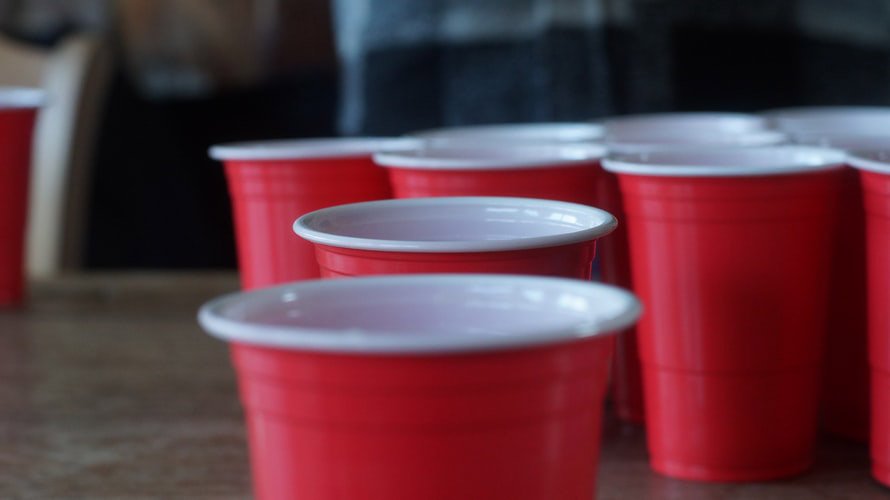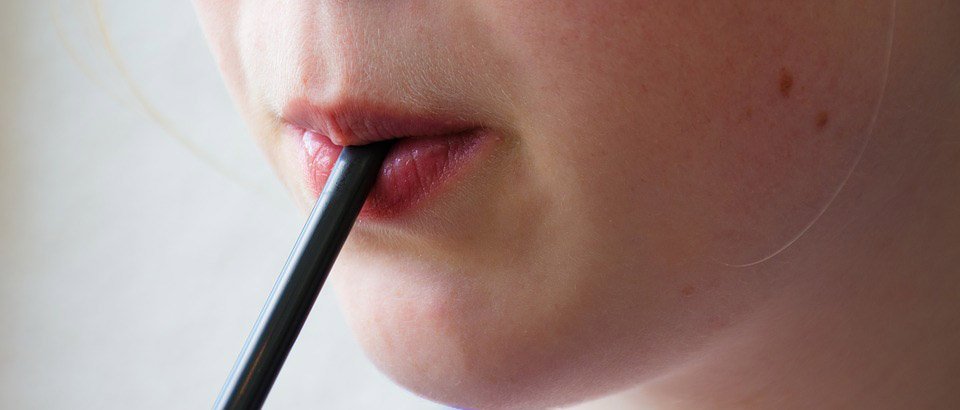Businesses expect an extension to EU’s July 3 deadline to ban single-use plastics
Business leaders have warned green-minded members of the public not to expect Cyprus to become a single-use plastic-free zone on July 3, when an EU directive banning such items is supposed to come into force.
They have scoffed at the government’s insistence that even if the House of Representatives does not pass the bill harmonising Cyprus legislation with the EU directive on the ban of single-use plastic (SUPs), the measure will still be implemented.
Instead, the business sector has called for the ban to be postponed to allow companies to sell or use their stocks left unused since last year due to the numbing consequences of the pandemic.
The Cyprus Chamber of Commerce and Industry (Keve) cited as an example a well-known ice-cream factory.
“Last year it imported one million plastic cups with their logo but due to the pandemic, they were only able to use 300,000 due to the low number of tourists,” Andreas Andreou, director of Keve’s department of industry, told the Sunday Mail.
He added that they had stored the rest waiting to use them this summer season.
“If they are banned from using them, without being given a timeframe to do so, what are they going to do?” Andreou asked.
And, of course, even if they have to be dumped, they might as well be used beforehand.
All businesses are asking, he said, is to be at least given time to use these items during the summer season.

Businesses say they have leftover stock because of the pandemic lockdowns when they were closed which they need to get rid of
The EU directive banning SUPs from the market in favour of sustainable alternatives is wide-ranging and includes: stems of cotton buds, plastic straws, plates, cutlery, cups, beverage stirrers, balloons and plastic balloon rods, expanded polystyrene food and beverage containers (with or without lid), cups and their lids and products made from oxo-biodegradable plastic.
The bill harmonising national legislation with this EU directive has yet even to be tabled to parliament for discussion and vote. The draft is currently with the state Law Office for vetting. With parliament out of action because of Sunday’s parliamentary elections, the bill will be dealt with by the new legislative body.
The hurdles are clear. Efi Xanthou, the Greens’ deputy head, told the Sunday Mail the bill will most likely be tabled right after the new parliament resumes operations to vote as urgent. But, according to her, this will also depend on the composition of the new House environment committee. She argued that if there are many new MPs, they might not agree to just vote on it before there is exhaustive discussion.
Xanthou said that some companies, especially supermarket, coffeeshop and restaurant chains have already taken measures to meet the July 3 deadline, but doubted whether all businesses had been properly informed.
Both the agriculture ministry’s environment department and Keve told the Sunday Mail that businesses had been briefed about the directive’s provisions.
The environment department told the Sunday Mail the affected companies have been informed both through Keve and the employers and industrialists federation (OEV) and other non-governmental organisations.
But Keve’s Andreou insists that unless parliament swiftly passes the bill to transpose the EU directive into national law, the measure will not be implemented on July 3.
EU regulations, he explained, are binding legislative acts and above national law, but the EU’s SUP ban is a directive which means they need to be transposed into national law first. This, he said, simply will not happen by July 3 as the bill has yet to be tabled and passed by parliament.
“I don’t know how it will be implemented if there is no legislation,” he said.
He said that when it is finally sent to parliament for discussion, stakeholders, including Keve, will be invited to express their opinion and this phase usually takes a long time if many objections are heard.
According to the agriculture ministry, however, directives, even though they must be transposed into national legislation, are also legally binding.
To the question on whether the ban will still be in force if the bill is not passed by parliament before that date, the agriculture ministry responded in writing: “The provisions of the directive, whether they concern prohibitions or markings, apply from July 3, 2021. The European directives constitute a binding law and their entry into force is the date indicated by them (which in this case is 3/7/2021).”
The ministry told the Sunday Mail that their goal remains to have the bill passed by July 3, but they conceded that the risk of EU sanctions for any delays “is considered a remote one”.
But even if the bill is passed in time, Keve is insisting on postponing its implementation to give time to businesses that have not been able to sell the quantities they imported or produced due to the pandemic.
“They have a big stock,” Andreou said.
He said that the aim is not to ignore measures against products that contribute to environmental pollution but to help companies avoid big losses which would also result in loss of jobs.
In a letter to Agriculture Minister Costas Kadis, sent in December 2020, Keve, citing the financial consequences due to the pandemic, said that the implementation of this regulation would bring “insurmountable problems to Cypriot businesses that produce or do trade based on these products”.
Keve suggests that the ban is introduced after the end of a smooth tourist season to allow affected businesses to sell and use their stock and prepare for what lies ahead.
According to sources, it is expected that the industry will be given a small extension.
“No extension has been given by the European Commission,” the agriculture ministry told the Sunday Mail.
Andreou sees this as semantics. “No directive provides for an extension,” he countered, but argued that given the government’s delay in seeing the bill passed, postponing the implementation was inevitable.
According to the agriculture ministry, harmonising regulations fall under the laws on waste production and the provisions of that legislation regarding any infringements apply. It explained that this was deemed as the most appropriate legislation for the transposition of the European directive, which in addition to the placing on the market includes provisions regarding waste management and the extended responsibility of the producer.
“The environment department aims to implement the European directive as smoothly as possible,” it added.
Beyond the legal wrangle over delays, groups of businesses are taking the issue seriously. One of the initiatives help businesses with the transition, is the ‘Keep our Sand and Sea Plastic Free’ project that works with Famagusta district food and beverage businesses on alternative ways to replace those banned items.
The pilot project is an initiative of the TUI Care Foundation in partnership with the Travel Foundation and the Cyprus Sustainable Tourism Initiative (CSTI) and aims to reduce the consumption of single-use plastics in the tourism industry in the Famagusta region.
Panayiota Koutsofta, coordinator of the project, said TUI chose Famagusta for this pilot programme, and if successful, it will be implemented in other parts of the world.
“We cooperate with over 80 businesses in the Famagusta district through the project and offer them guidance as regards alternative ways to replace SUPs,” she said.
This initiative might mollify some because it means there is an acceptance that the single-use plastic cup et al is indeed on the way out, but, barring a miracle, it will not be by July 3.







Click here to change your cookie preferences